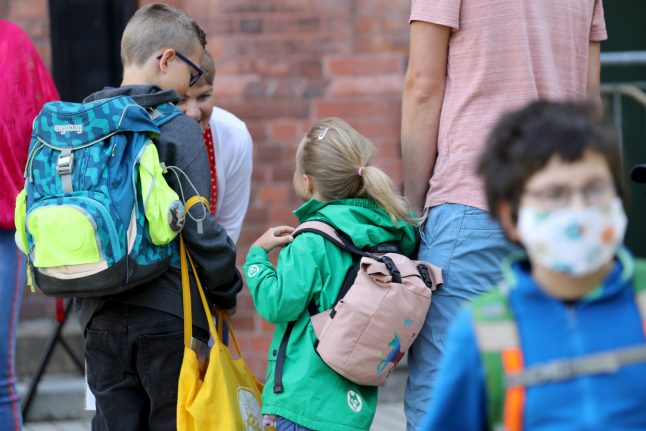Just days after schools in the northeastern state of Mecklenburg-Western Pomerania became the first to reopen full time after the break, some 800 students were forced to head home from the Goethe Gymnasium in Ludwigslust after a teacher tested positive for COVID-19.
The infected teacher has not given any lessons since the secondary school reopened on Monday, but all 55 teachers will now have to be tested for the virus.
READ ALSO: First schools in Germany reopen – under new measures
The school will remain closed until at least Wednesday, said a statement issued by the district.
Separately, 100 pupils from a primary school in Rostock district have been placed under quarantine for two weeks after a pupil was confirmed infected.
The situation in Mecklenburg-Western Pomerania is closely watched across the country as it was the first of Germany's 16 states to reopen the school gates on Monday after summer holidays. Hamburg also welcomed pupils again on Thursday.
State education ministers had agreed in July that schools will be back in full-time operation in the new school year, after offering only partial hours as the lockdown was eased.
But critics have questioned whether this would be realistic as infection rates are rising again.
READ ALSO: Coronavirus: Can Germany's schools safely reopen?
The latest closures in the northern region would likely also serve as a cautionary tale as children in capital Berlin and those in Germany's most populous state, North Rhine-Westphalia, are poised to return to school from next week.
Germany has fared relatively well in the coronavirus crisis so far, but an uptick in cases widely attributed to Germans returning from holiday has sparked concern in recent weeks.
On Thursday, the number of new cases rose above the 1,000 mark — a level
not seen since May 7th.



 Please whitelist us to continue reading.
Please whitelist us to continue reading.
Member comments